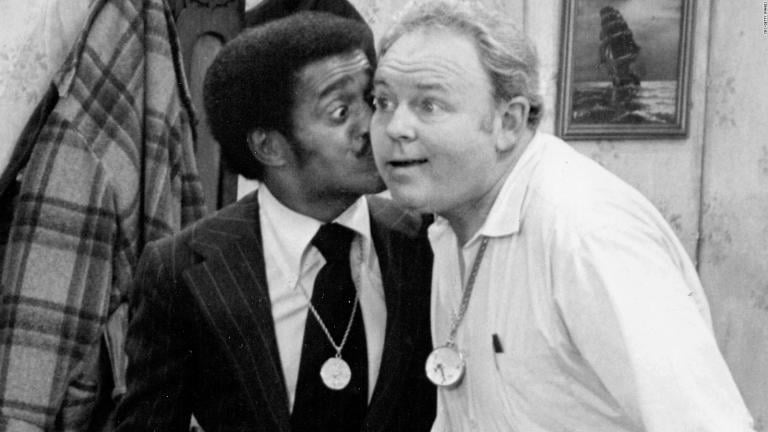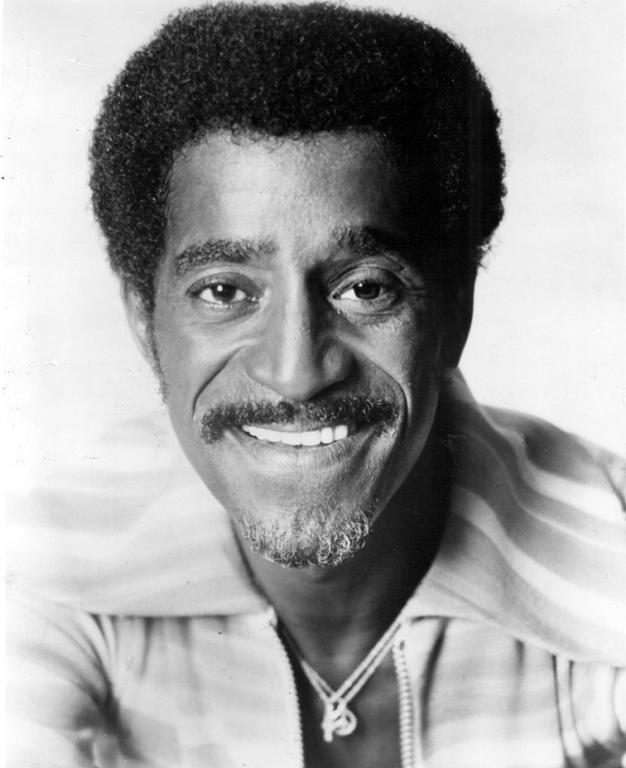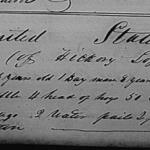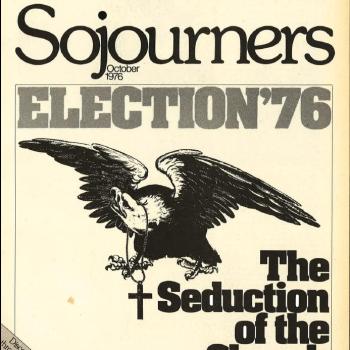Today we have the pleasure of having a guest contribution from Dr. Alicia Jackson. Dr. Alicia Jackson is an Associate Professor of History at Covenant College in Lookout Mountain, Georgia. She currently leads a community-based project that focuses on recovering the lost history and stories of a vibrant Black communities located in southern Appalachia. Her public writing has been published in the Washington Post and History News Network. In 2016 she was awarded a Louisville Project Grant for Researchers for her most recent publication The Recovered Life of Isaac Anderson.
Depending on a person’s age and city, town, or parish, the word “Bojangles” may refer to a restaurant, a famous Black performer, or a song made famous by the Nitty Gritty Dirt Band. In 1968, Jerry Jeff Walker wrote the song, “Mr. Bojangles” spending a night in a New Orleans jail. The song is often linked to Bill Robinson who was a famous African American actor, dancer, and singer, and who was also known as “Bojangles”. This moniker most often associated him with his role in films of the 1930s and 1940s including Stormy Weather and a string of Shirley Temple productions. Robinson was an incredibly successful and sought-after artist in his heyday, and he reportedly was one of the highest paid Black artists of his time. Unfortunately, he died penniless in 1949. By all accounts, Walker never met the man who was often known as Bojangles, but the fact that Robinson had performed in minstrel shows, used the name, and died penniless, served as a nexus between his life and Walker’s song.
In 1970, “Mr. Bojangles” was made famous by the Nitty Gritty Dirt Band and has since been recorded by other artists including Neil Diamond, Bob Dylan, and Nina Simone. In 1972, Sammy Davis Jr. recorded the song on his album, The People Tree. Davis’ long career in show business stretched back to his childhood and his massive success in vaudeville. The same year that he recorded “Mr. Bojangles”, he made a guest appearance in All in the Family which centered around Archie Bunker, a 70’s sitcom character who was notorious for his views on race. Playing himself in the episode, Davis accidently leaves his briefcase in Bunker’s cab and later stops by Bunker’s home to retrieve it. The episode drew national attention because of Davis’ infamous act while the two men posed for a picture together. As the camera clicks, Davis turns and kisses Bunker on the cheek before quickly exiting.
For many Black Americans, Davis’ action became a transgression that was often held against him even though it was fictional. Eartha Kitt once asked the performer, “Did you have to kiss him?”[1] Moreover, Davis’ ongoing support of Richard Nixon for President added to the growing animosity among Black Americans toward him. In 1968, the performer campaigned for Nixon, and in 1972, he again gave his support to the Republican candidate whose party had by then been abandoned by many Blacks as it shifted from the party of Lincoln to that of Barry Goldwater, the 1964 Republican presidential nominee who opposed Civil Rights legislation. Nixon failed to nominate any Black individuals to his cabinet, and to the contrary, he nominated two candidates to the Supreme Court who were known segregationists. By 1971, the Congressional Black Caucus was so frustrated with Nixon that they refused to attend the State of the Union address, yet in spite of this animosity, Davis, who was a Democrat, announced his support of Nixon in a televised commercial.
To many Black Americans living during this turbulent period, Davis’s actions conveyed his willingness to trade his identity as a Black man for proximity to power based in Whiteness, and although he had rallied for Civil Rights as an outspoken supporter of Martin Luther King and won the NAACP’s Spingarn Award in 1968, anger among Black Americans toward him was intense, and their response, immediate. Many Black entertainers such as Harry Belafonte and Sidney Poitier refused to speak with him as did Black workers at airports and places that he frequented, and he began to notice that year after year, less and less Black Americans attended his shows. In October of 1972, his perceptions were realized when he was booed at the Black Expo in Chicago, and record shop owners refused to sell his recordings. Davis was crushed. To him, the rejection of Black Americans was far worse than the disdain of Whites which he had experienced for most of his life. He had endured withering verbal and physical racism from White Americans during his time in the military, and this had led him to start doing comical impressions believing that people were less likely to be belligerent toward him if he could make them laugh.
Quizzically, his marriage to Swedish born Mia Britt had only generated a modest response from many Black Americans, but his support for Nixon and his comical, fictional kiss on Archie Bunker’s cheek generated insults that were nothing like what he experienced previously. Nevertheless, his support of Nixon was unshakable, and in 1973 following Nixon’s reelection, Davis performed at the White House, and Nixon gave him a full throttle hug from behind. During this performance, Davis sang “I Gotta Be Me” and “Mr. Bojangles”, and for many, the performance of the former song stood out as a mantra of Davis’ desire not to buckle to the disdain or the expectations of many Black Americans. The latter number, released a year before his performance at the White House, is the song that best captured Davis’ struggle to meet the expectations of Black Americans and avoid the disdain often experienced by Black celebrities who find themselves distanced from their own community due to their close proximity to Whiteness. Like Mr. Bojangles, they often play a “role” in order to be accepted by both Black and White Americans.
In Davis’s rendition, Mr. Bojangles reminisces about his performances in minstrel shows around the South. “I dance now and every chance a Honky-Tonk, for my drinks and tips . . . But most of the time I spend behind these county bars. You see son, I drinks a bit”. Although in his performance, the lyrics of the song virtually mirrors its earlier renditions, a subtext of lament increases dramatically as Davis conveys what seems to be a lifetime of painful reflection through it. For many Black performers such as Hattie McDaniel or Steph’en Fetchit, good positions in entertainment required the good performances of “roles”, both on and off the stage, and these performances often reinforced negative stereotypes embraced by White Americans and vilified by Black Americans. Stereotypical expectations coupled with increasing disdain often resulted in Black performers ending their careers and lives in poverty or substance abuse. Davis was well aware of this trend and was continually fearful of becoming irrelevant and penniless himself, and his performance of these negative roles gave power and tearful depths to his renditions of “Mr. Bojangles”, especially as he performed the song towards the end of his career.
As Davis reminisced in his performances, Mr. Bojangles played in minstrel shows, and his one loyal companion was his dog, for which he didn’t have to play any role. Of the dog, Davis sings, “He spoke with tears of fifteen years how his dog and him Traveled about. The dog up and died, he up and died. After twenty years he still grieves.” Mr. Bojangles is demoralized, and as he ages, he is increasingly bound to his role as a minstrel. His only solace is found in performing in “white spaces” where he assumes his role as a minstrel and copes, through “drinks and tips”, with living on the margins of social acceptance. His story is the experience of many Black Americans who have found themselves “performing” in white spaces and consequently, becoming consciously and unconsciously distant from Black communities. Often, destructive behavior masks the pain of these performances: “But most the time I spend behind these county bars ‘Cause I drinks a bit”.
Davis’ role as a high-profile Black entertainer earned him credibility, and in his autobiography, Sammy, he writes, “Forget intelligence, forget sophistication, forget the friends I’d made along the way. All I really had was my talent. Without that I wouldn’t be welcome at the White House, I wouldn’t be able to help anybody, not even myself. If God ever took away my talent I would be a nigger again.”[2] The differences between his rendition of “Mr. Bojangles” and that of previous, mostly white entertainers, is most notable in his performances in Berlin in 1972 and in 1985, the latter of which occurred five years before his death. Davis’ interpretation of “Mr. Bojangles” embodies the long-standing tradition of Black entertainers refashioning songs and stories with painful subtext. In “Mr. Bojangles”, Davis echoes the lament of millions of Black Americans who have lived in places where their talent is celebrated best when augmented and modulated to endure the “white gaze”. This experience, captured in the performance of Davis’ signature piece, has been endured by many Black Americans, and Davis’ performance imparts a solemn warning to those who currently are tempted to augment or modulate their own performances to endure, or even embrace, the “white gaze”.
[1] Will Haygood, In Black and White: The Life of Sammy Davis Jr. ( New York: Vintage Books, 2003),434.
[2] Sammy Davis Jr., and Jane and Burt Boyar, Sammy, New York: Farrar, Straus, and Giroux, 2000. 473



















